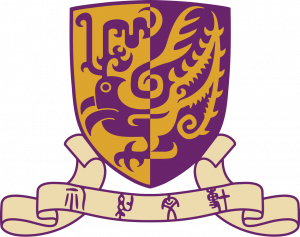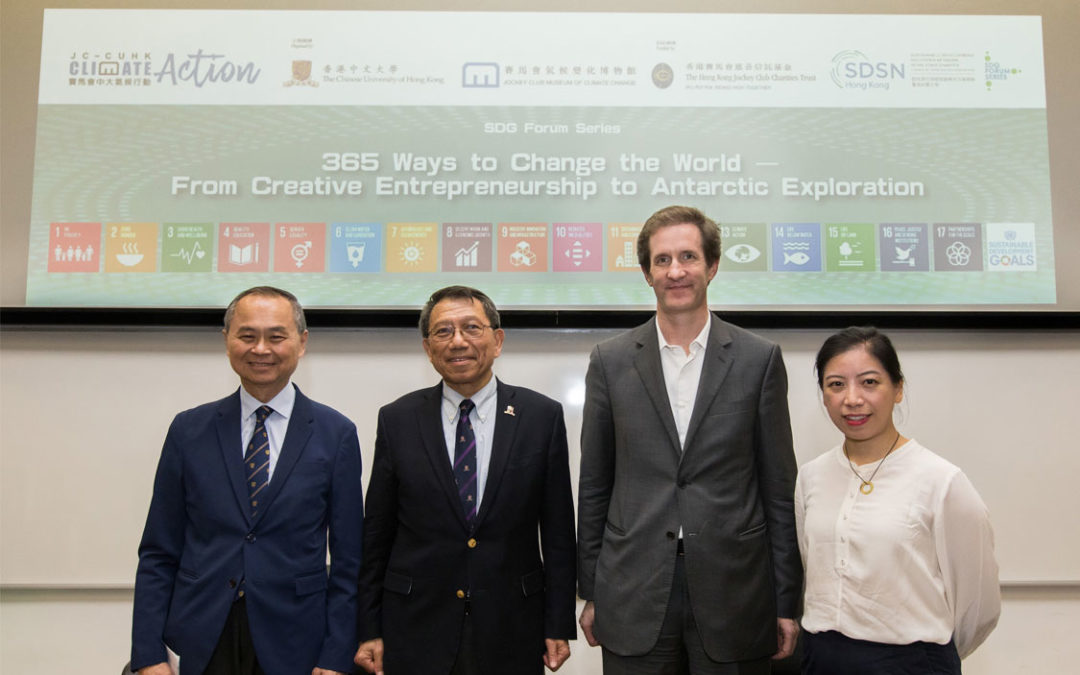SDSN Hong Kong and CUHK Jockey Club Museum of Climate Change Jointly Organise the ‘365 Ways to Change the World – From Creative Entrepreneurship to Antarctic Exploration’ Forum
Press Release, SDSN Hong Kong, MoCC, Climate Change, SDGs | 31 October 2019
// The Hong Kong Chapter of the United Nations’ Sustainable Development Solutions Network (SDSN Hong Kong) and the Jockey Club Museum of Climate Change of The Chinese University of Hong Kong (CUHK) jointly organised a forum titled ‘365 Ways to Change the World – From Creative Entrepreneurship to Antarctic Exploration’ as part of the Sustainable Development Goals (SDGs) Forum Series yesterday (28 October). Dr Guido Schmidt-Traub, Executive Director of the United Nations Sustainable Development Solutions Network (SDSN), and Prof. Wu Ka-ming, Associate Professor in the Department of Cultural and Religious Studies of CUHK, spoke to the audience of their experience and vision in the pursuit of sustainability.
In his welcome address, Prof. Rocky S. Tuan, Vice-Chancellor and President of CUHK, said, ‘In the 21st century, global challenges are looming and occurring more rapidly than ever before. We need to carefully address and strike a balance among issues related to poverty, inequality, climate, the environment, prosperity, and peace and justice. We are privileged to have Dr Schmidt-Traub to share with us his insights into how we can join efforts in the pursuit and promotion of sustainable development, together with Professor Wu from our Department of Cultural and Religious Studies.’
Dr Schmidt-Traub is devoted to long-term sustainability planning work, and believes that we should achieve sustainability in parallel with international and regional development and take immediate action to ensure ‘no one will be left behind’. In the forum, he spoke on the SDSN’s efforts to promote integrated approaches to implement the SDGs and the Paris Agreement on Climate Change, and how businesses can work together to combat global challenges.
Prof. Wu gave her views on the waste management sector in China, and how the different practices in urban and rural areas have led to various social problems, such as class segregation. She also introduced the Homeward Bound Programme, the largest ever female expedition to Antarctica, and explained how the programme can generate effective solutions for tackling climate change by engaging the expertise of female scientists around the world.
During the panel discussion and the Q&A session, the two speakers held a fruitful discussion with the audience about creative solutions to address various society-and environment-related SDGs. //
Read the article in full: https://bit.ly/2Wu3RIp


